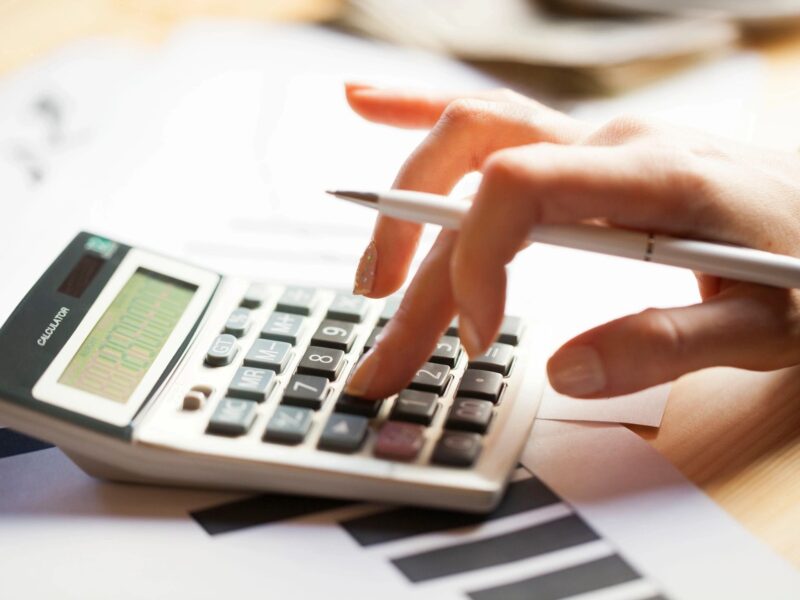Personal loans are some of the most popular loans in the country. Everyone is getting personal loans, and why? They are one of the easiest to get, and they are the most versatile loan type you can get.
However, you shouldn’t just jump and get a loan because you can! Sure, getting great installment loans Minnesota is something that can help you out a lot in many situations, but you should not be getting loans just because you can.
Some people might take out a personal loan for a vacation, which you shouldn’t do. Is that vacation really worth years of debt?
That being said, there is a lot of good that can come from getting a personal loan too. They can help consolidate your debts, or pay off emergency medical bills, or help you fix up your kitchen when a few of your appliances finally break.
So, what should you be thinking about before you get a personal loan? Today we have 5 top things to consider. However, if you are new to loans, we will start by giving you some insight into what these loans are.
What Is A Personal Loan?
Personal loans are a type of loan which you can use for almost anything. Unlike many other loans out there they do not have a specific purpose. So, whether you need to do some home repairs, pay off some medical bills, or to contribute to studying, personal loans can help you out.
They are often unsecured installment loans, but not always, and you can get them from credit unions, banks, or online lenders.
Always look into any lender before you choose to get a personal loan with them.
Now, what do you need to consider?
#1. Do You Really Need A Personal Loan?
Firstly, do you actually need a loan? Sometimes we can get money in better ways than a loan. Such as our previous example of using a loan for vacations. Always understand that a loan is not free money, you do have to pay it back.
You should also be considering if you can afford a loan right now? If you have a lot of credit dragging you back already, perhaps another loan is not a good idea, unless of course you use the personal loan to consolidate your debts.
Before you take out a personal loan, always make sure that you need to take out the loan in the first place. Taking out a personal loan when you do not need to can result in you spiraling into debt unnecessarily.
#2. Understand How APR Works
Note that APR stands for ‘Annual Percentage rate’. This is the yearly rate that you will be charged at for borrowing the money. Personal loans can often have a fairly low APR in comparison to other loan types, but it is still best to seek out low APR rates.
Even if a company is advertising a low APR, this does not mean that this is what you will receive the APR rate that they advertise. If a personal loan company advertises a representative APR rate then around half of the applicants who are successful will get this, not all.
#3. Know About Your Credit Score/ History
When you apply for a loan, the lender will look at your credit score and history. Most lenders will use the FICO score for this. They will carry out a check to view how much of a risk you are as a borrower.
This means that you also need to be aware that any interest rates that are advertised, you may also not get. If you have an okay score, the rate may be higher.
Also note that if you have a poor credit score, you may not get the loan at all.
Different lenders will use different companies to calculate your score, however, most will use FICO, but you should be aware of this nonetheless.
Lenders will also look at your credit history as well. They will assess how successful you have been at paying back loans in the past, and if you have any history of defaults on loans.
Having a good credit history and credit score will get you a better rate with a lender, and you will be more successful.
#4. Know How Secured Vs Unsecured Loans Work
While a majority of personal loans are unsecured, some will be secured. The difference between these two loan types is that secured loans will require some form of collateral in the event that you default on the loan.
Secured loans are a good choice for those with poor credit scores as you are more likely to get a secured loan than an unsecured loan if your credit score is poor. However, there is the downside that if you default on the loan you can lose your property.
Unsecured loans do not require collateral, instead they work by interest rates. With a good credit score, and as a good applicant you are likely to get a lower rate, however, with a poor credit score, the interest rate will be higher, or you may not even get the loan.
Also note, if you default on payments this will be reflected on your credit report, which will make it harder to get a loan in the future.
#5. Too Many Applications Can Be A Bad Thing
Applying for multiple loans all at once may seem like a good idea to find out who can give you the best deal, but it will do more damage to you than it will do good.
Every application you do will get noted on your credit report which will look bad to lenders, and you could even get your applications declined for this, even if you would have easily qualified for them if you had not.
To check APR rates and find a good deal you should use an online checker for eligibility to compare the loans. Never apply to many at once!



